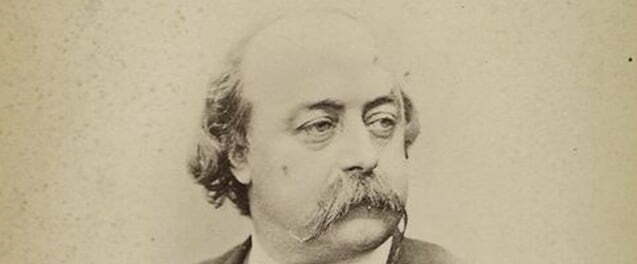
Gustave Flaubert’s caged bird
On this day in 1821 the French writer Gustave Flaubert was born. His reputation really comes from Madame Bovary, his amazing debut novel that tells a basically simple tale of a provincial wife’s infidelity. What makes the book so special is the way Flaubert balances the realism of the story with the nuances of each character’s fears and aspirations.
Consider poor deluded Emma Bovary, a caged bird, trapped and frustrated in her humdrum life: “Though she had no one to write to, she had bought herself a blotter, a writing case, a pen and envelopes; she would dust off her whatnot, look at herself in the mirror, take up a book, and then begin to daydream and let it fall to her lap . . . She wanted to die. And she also wanted to live in Paris.”
Today’s poem is by Paul Laurence Dunbar, entitled Sympathy, about another caged bird:
I know what the caged bird feels, alas!
When the sun is bright on the upland slopes;
When the wind stirs soft through the springing grass,
And the river flows like a stream of glass;
When the first bird sings and the first bud opes,
And the faint perfume from its chalice steals –
I know what the caged bird feels!
I know why the caged bird beats his wing
Till its blood is red on the cruel bars;
When his wing is bruised and his bosom sore, –
When he beats his bars and he would be free;
It is not a carol of joy or glee,
But a prayer that he sends from his heart’s deep core,
But a plea, that upward to Heaven he flings –
I know why the caged bird sings!
Today I ask that I be motivated by my real needs and thoughts rather than by my delusions, fears and aspirations.
